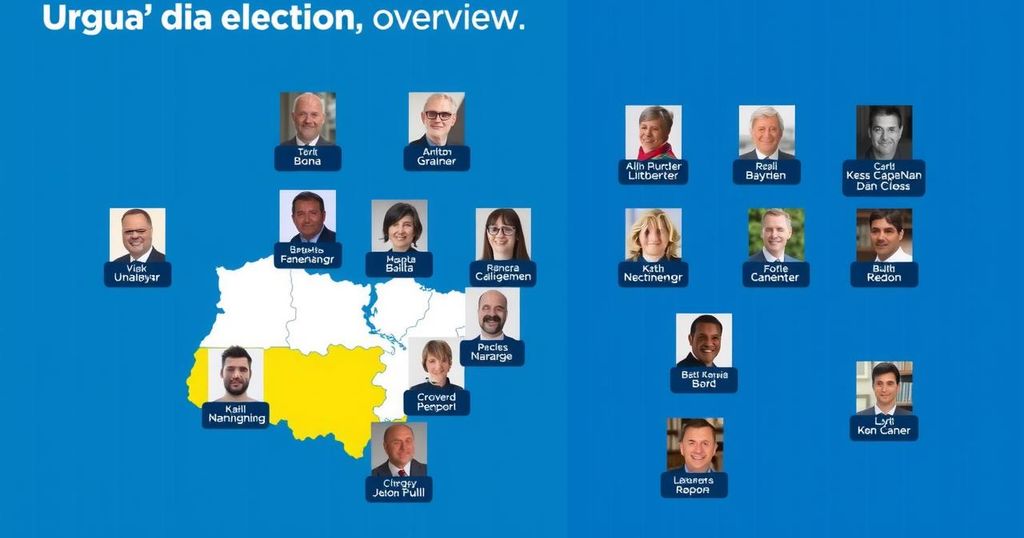Uruguay is set to vote in presidential elections on Sunday, emphasizing significant issues such as crime, child poverty, and an aging demographic. With current President Luis Lacalle Pou term-limited, voters will choose between his conservative coalition or a moderate leftist alliance that previously governed from 2005 to 2020. The election results could impact foreign trade negotiations, particularly with China. Challenges pertaining to a rising elderly population and drug-related violence remain critical considerations for the next administration.
Uruguay is preparing for its presidential elections, set to take place this Sunday, amid pressing socio-economic issues including crime rates, child poverty, and an aging population. Recognized as a model of political and economic stability within Latin America, Uruguay has a population of approximately 3.4 million residents who are expected to participate in this critical democratic process. The current president, Luis Lacalle Pou, who is 51 years old, is term-limited and thus cannot seek a consecutive term. The election will determine whether his conservative coalition will maintain its hold on the presidency or if a moderate leftist alliance will reclaim influence, having previously governed from 2005 to 2020 during which time they legalized marijuana and advanced green energy initiatives. A significant potential outcome of this election is the impact on future foreign trade policies, particularly concerning a prospective trade agreement with China. The leftist candidate, Yamandú Orsi, has expressed a preference for negotiating such agreements via Mercosur, a regional coalition of South American nations. Regardless of the victor, the newly elected leader will face challenges stemming from a demographic shift towards an older population, persistent child poverty, and rising violent crime rates fueled by rampant drug trafficking, which have begun to challenge Uruguay’s long-standing reputation as one of South America’s safest nations.
The upcoming 2024 elections in Uruguay are crucial as they highlight the country’s unique political landscape characterized by civility and policy-driven discourse, particularly when contrasted with political scenes in other regions such as the United States. With an established constitutional framework limiting presidential terms, the elections serve as a pivotal moment for the political factions within the country. The previous government from 2005 to 2020, which emphasized progressive social policies, may return to power, which would signify a shift in governance and policy direction following the conservative tenure of President Lacalle Pou. The socio-economic issues at hand, ranging from child poverty to drug-related violence, require the new government to adopt strategic measures to maintain Uruguay’s stability and improve living conditions for its citizens.
As Uruguay approaches its presidential elections this Sunday, the issues of crime, child poverty, and demographic challenges loom large over the electoral process. Voters will choose between continuing the current conservative administration or reverting to the leftist policies of the previous administration. The election outcome could significantly influence Uruguay’s foreign trade strategy and will determine how effectively the new government can address pressing social concerns. The forthcoming election not only reflects the democratic values of Uruguay but also showcases the nation’s commitment to addressing critical issues facing its populace.
Original Source: www.nytimes.com






